Digging in the dirt is teaching Gen Z more than how to keep basil alive.

Gardening isn’t just for retirees or cottagecore aesthetics anymore—it’s becoming a hands-on classroom for a generation raised online. As digital fatigue sets in and climate anxiety grows louder, Gen Z is heading outdoors with seeds, shovels, and surprising dedication. It’s less about growing the perfect tomato and more about cultivating patience, self-sufficiency, and a deeper connection to the real world.
These are the real-life skills Gen Z is learning while tending their backyard plots and fire escape planters.
1. Gardening teaches patience in an instant gratification world.

Everything Gen Z wants is usually a tap away—except when it comes to plants. Seeds don’t care about timelines or algorithms. You plant, you water, and then… you wait. Gardening forces a slow rhythm. There’s no immediate payoff, and that’s kind of the point. Watching something grow over weeks or months builds anticipation and resilience. You can’t swipe your way to a harvest. You just have to show up, consistently, and trust the process. It’s a refreshing break from the digital world where dopamine hits are delivered in seconds. Here, you earn satisfaction through time, not likes.
2. It builds a real sense of responsibility.
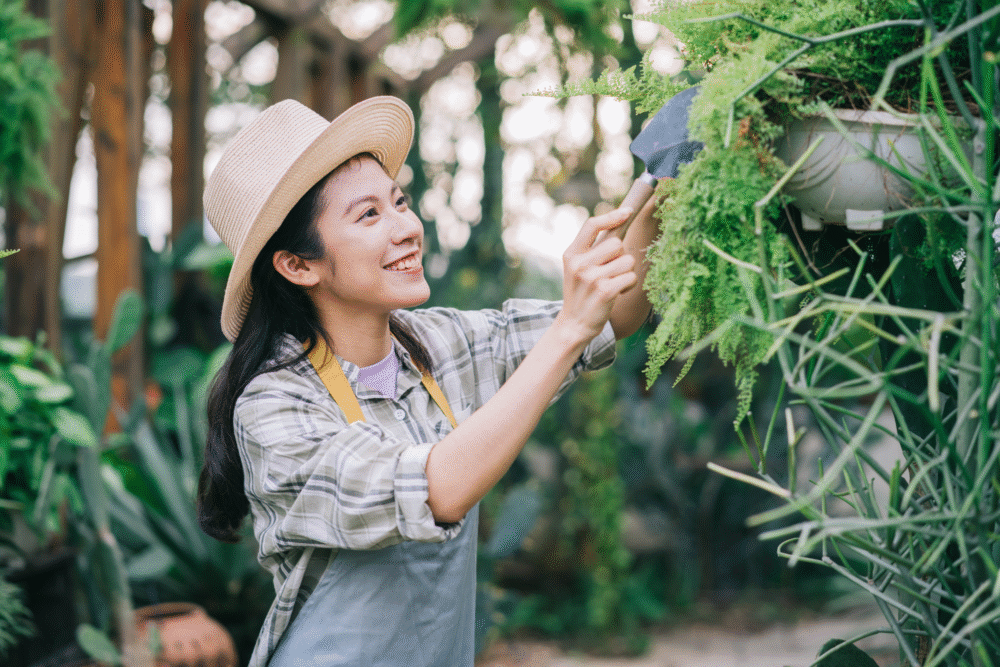
Keeping a plant alive means you actually have to remember to water it—and not just when it’s convenient. Gardening gives Gen Z a low-stakes but real way to build daily habits. You have to pay attention to weather, daylight, and soil health. It’s a relationship, not a task. Neglect has visible consequences. Watching a plant wilt because you forgot about it stings, but it also teaches you to be more present. There’s no auto-pilot. No snooze button. Just a living thing that quietly depends on you. And once you get into the rhythm, it feels surprisingly grounding.
3. Gardening encourages problem-solving through trial and error.
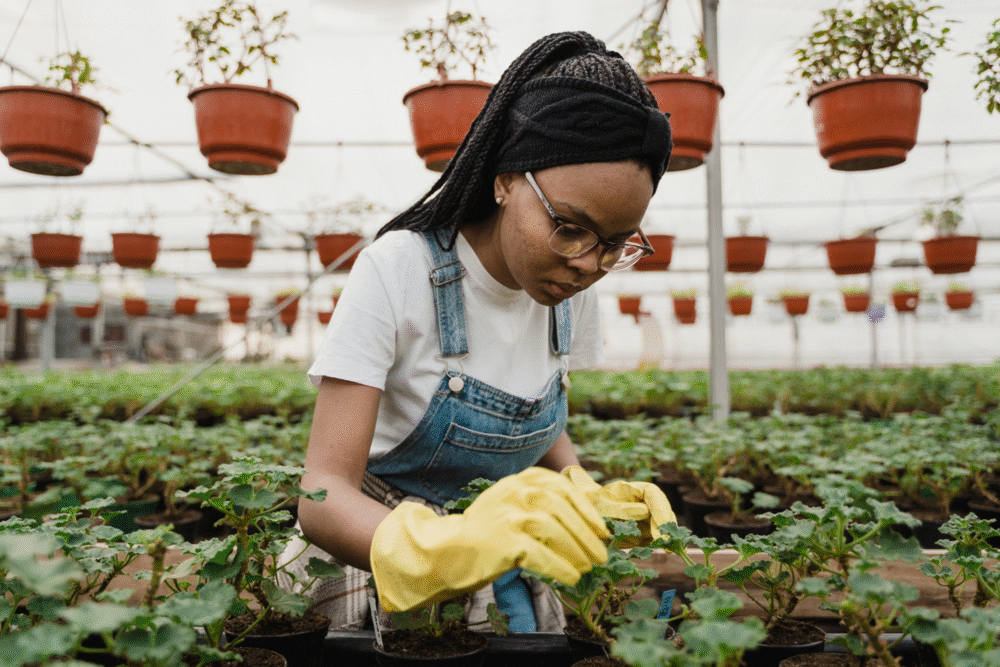
Did the leaves turn yellow? Are the tomatoes splitting? Is that a bug infestation or just weird weather? Gardening gives Gen Z a way to flex their research muscles without a test at the end. Every plant issue is a puzzle, and the solutions require observation, curiosity, and a little improvisation. You learn quickly that not everything has a clear answer—and that’s okay. There’s freedom in experimenting, messing up, and trying again. In a world of curated perfection, gardening lets you make mistakes without shame. Each plant is a new chance to figure it out.
4. It creates a tangible connection to the food system.
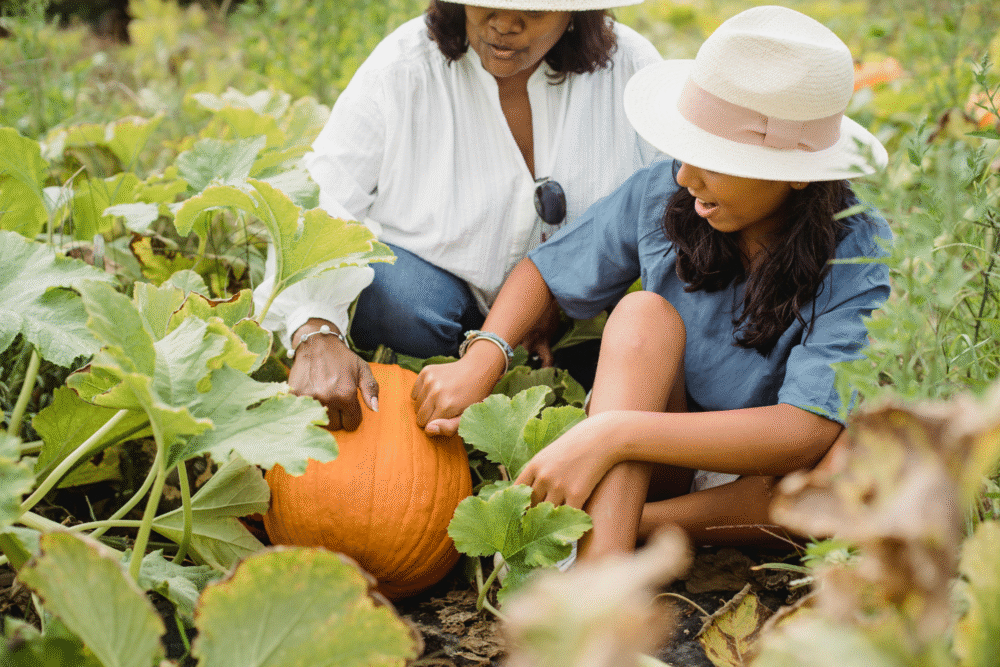
A lot of Gen Z grew up with convenience—pre-washed lettuce, plastic-wrapped strawberries, drive-thru everything. Gardening puts them face to face with the time, effort, and conditions it takes to grow what we eat. Suddenly, a head of lettuce isn’t just 99 cents at the store—it’s weeks of tending and hoping the weather cooperates. This changes how they view food waste, grocery pricing, and food justice. It makes “eat local” feel personal. Growing even a few herbs or a handful of vegetables can spark a deeper appreciation for sustainability and the realities of modern agriculture.
5. It strengthens emotional regulation through mindful activity.

There’s something oddly therapeutic about pulling weeds or pruning leaves. Gardening gives Gen Z a break from the mental noise, offering quiet tasks that require focus without pressure. It’s a kind of active meditation that doesn’t feel forced. You get dirty, stay off your phone, and lose track of time in the best way. Even when it’s frustrating—like when a plant dies or pests invade—there’s an emotional release in tending to something that doesn’t talk back. For a generation managing anxiety and burnout, gardening becomes a low-key way to reset without needing a screen or a subscription.
6. Gardening builds confidence through visible results.
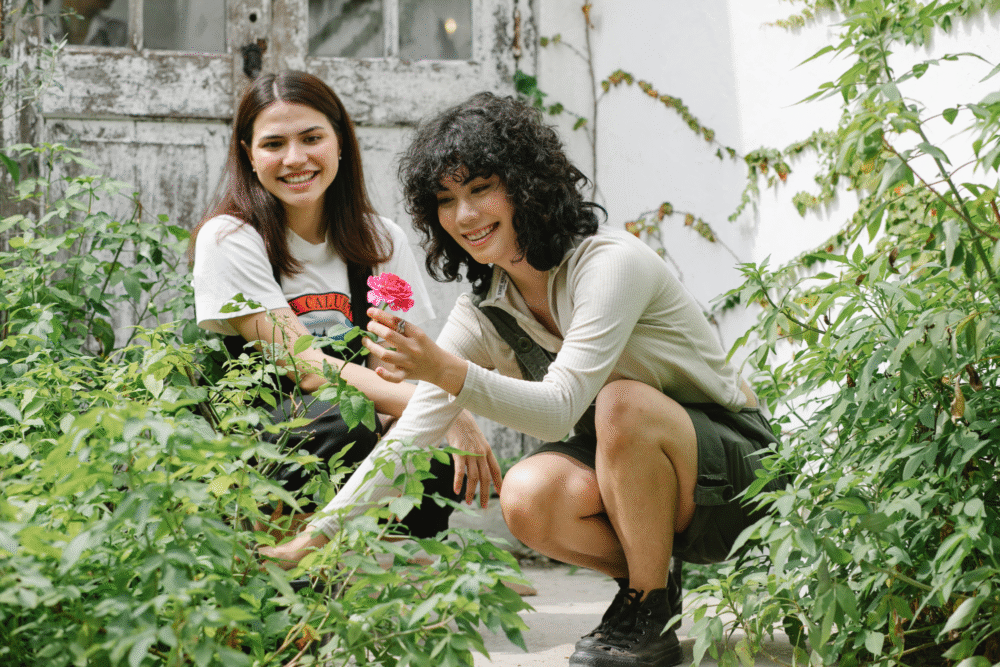
Watching something grow because of your effort is powerful. Gen Z, raised in a world of comparison and shifting metrics, often struggles to feel like progress is tangible. Gardening changes that. You start with a seed. You care for it. You see it change. Each sprout, bloom, or harvest is proof that you did something right. It’s not abstract. It’s not up for debate. The results are right there in your hands—or your salad bowl. That kind of concrete validation builds quiet confidence. It proves that you’re capable, persistent, and learning with every leaf.
7. It fosters resourcefulness and adaptability.

Gardening is full of surprises. A sudden heat wave. A plant that refuses to grow. Bugs, mildew, storms—you name it. Gen Z is learning how to pivot and adjust. Maybe you try shade cloth. Maybe you move containers indoors. Maybe you compost for the first time. Gardening rewards creative thinking and flexibility. It also teaches that control is an illusion and that progress often looks messy. There’s a weird comfort in that lesson. You can’t plan for everything. You just keep showing up, learning, and adapting as you go. That mindset doesn’t stop at the garden gate.
8. Gardening strengthens community in non-performative ways.
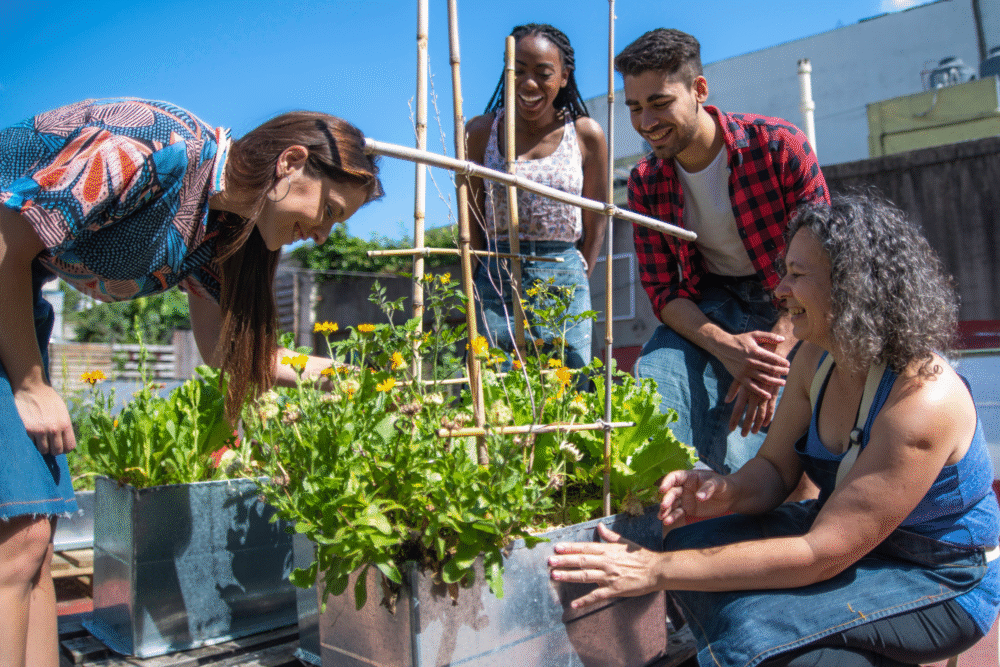
Community gardens, seed swaps, and plant share groups have become quiet sanctuaries for Gen Z. There’s no follower count, no performance metrics—just shared knowledge and green thumbs. Gardening creates connection through doing, not posturing. You trade basil starts with your neighbor. You help a friend identify a plant disease. These interactions feel honest and grounded in mutual care. There’s something radical about connecting without performance, especially for a generation used to networking online. Gardening brings people together without needing a filter—and that kind of authenticity is rare, and deeply refreshing.
